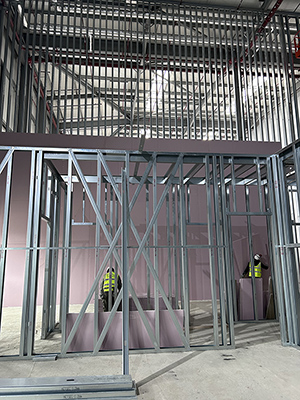Reducing carbon in steel
As with most other sectors of the economy, the construction industry is coming under increasing pressure to become more sustainable and to minimise the carbon emissions and environmental impact of projects.
Together with environmental initiatives, such as the London Plan 2021, which requires medium- and large-scale construction projects in London to have an Environmental Product Declaration (EPD) and carbon footprint statements as part of the planning application, central government and local authority policies place increased pressure on architects, developers and clients to design and construct buildings using sustainable materials and methods.
- Read more about Reducing carbon in steel
- Log in to post comments





















